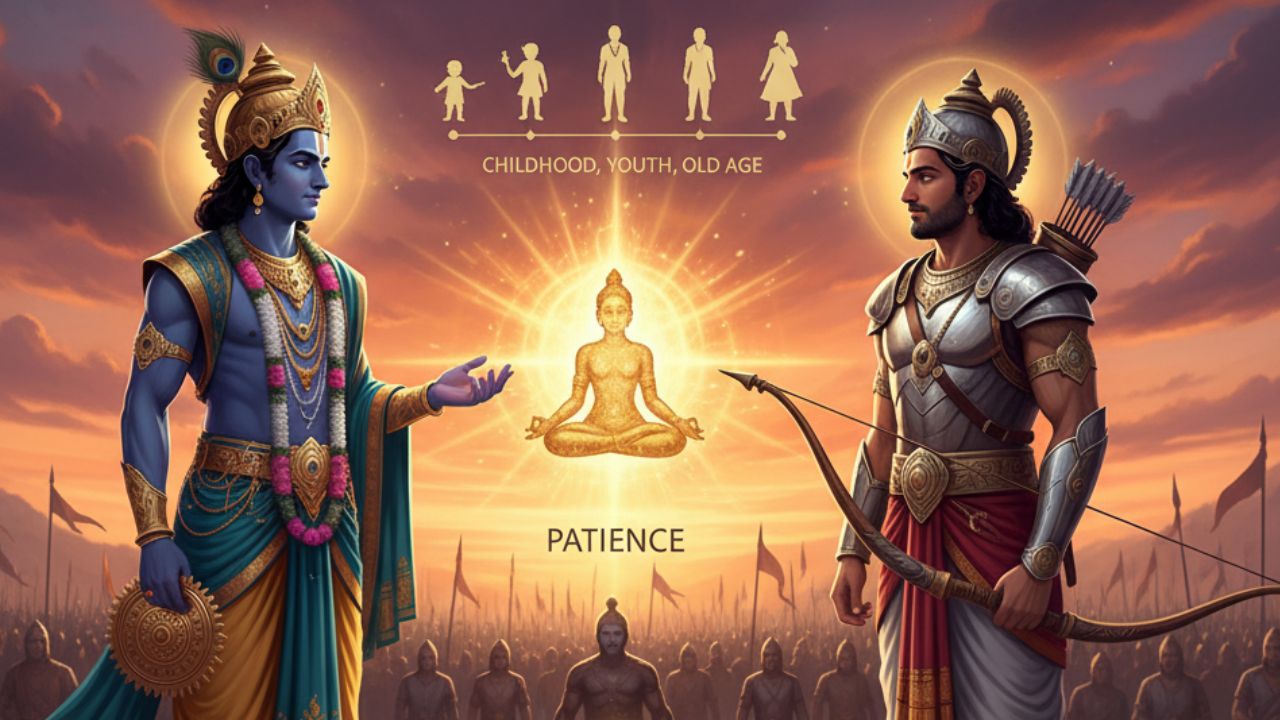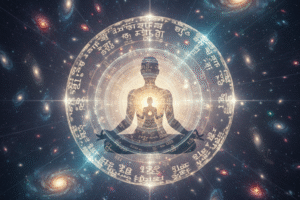
Ch-2|Meaning of Shlokas 13-14
- Posted by Sri Kameswari Foundation
- Date October 3, 2025
- Comments 0 comment
Meaning of Ślokas 13-14
Śloka 13
When a jīva takes birth in a body,it naturally passes through different stages—childhood,youth, and old age.These changes do not alter the identity of the jīva itself;they are only changes in the body through which it expresses.In the same way, when one body becomes unfit,the jīva moves on to take birth in another body.
A person of wisdom,a dhīra is not disturbed by this truth.Such a person clearly understands that the soul does not end with the body,and hence remains free from confusion or sorrow when confronted with the realities of birth and death.
Tanmātras
The term tanmātra refers to the fundamental experiences we gain through our senses:
through the eyes (form and color);through the ears(sound);through the nose(smell);through the tongue(taste);through the skin(touch).
These sense perceptions form the basis of our day-to-day experience.Yet,all of them share a common feature—they are impermanent.Whatever is seen,heard,smelled,tasted or touched lasts only for a while.Deep down,we all know this fact,but in practice,we often fail to accept it.
Because of this attachment to fleeting perceptions,our minds swing between excitement when things are pleasant and sorrow when they are unpleasant.But if we can truly recognize and accept that sensory experiences are not eternal,we learn to remain balanced.This balanced state is what is meant by patience.
Patience here does not merely mean waiting without complaint.It means learning to master our senses instead of being enslaved by them.It is the capacity to stand firm in the awareness that whatever the senses report—whether it is joy or sorrow, gain or loss—is temporary and will pass away in time.
When this perspective is cultivated,one no longer reacts impulsively to external situations. Instead,one develops an inner strength that allows for steadiness in the midst of change.
This teaching becomes especially relevant to Arjuna on the battlefield.Standing with his bow and arrow,ready for war,his mind is disturbed by attachment.He looks at the opposing army and sees not warriors but his own relatives,teachers and friends.His heart is torn because he is identifying them with their bodies and relationships, forgetting the truth of the eternal jīva.
Kṛṣṇa, as the compassionate teacher, reminds him that bodies may perish, but the soul continues its journey. Recognizing this allows one to act with clarity and detachment, fulfilling one’s duty without being consumed by grief.
Śloka 14: Kṛṣṇa says,“O son of Kuntī (Arjuna),experiences of pleasure and pain arise from the tanmātras.They come with time and fade with time—they are not permanent. Therefore, do not get swept away either by the thrill of happiness or the weight of sorrow. Instead, keep your awareness steady, and remain rooted in the deeper movement of your consciousness.”
This verse emphasizes that the outer world will continue to present changing conditions.But wisdom lies in not allowing these passing experiences to dictate the state of the mind.The wise learn to observe,remain centered and see beyond the surface play of senses into the eternal reality of the Self.
You can also listen to this in Telugu from our Āchārya,Dr. Jammalamadaka Suryanārāyaṇa garu,by clicking the video below.
You may also like

Ch-2|Meaning of Shlokas 18-23

True Scholar,Analogy of Clothes

